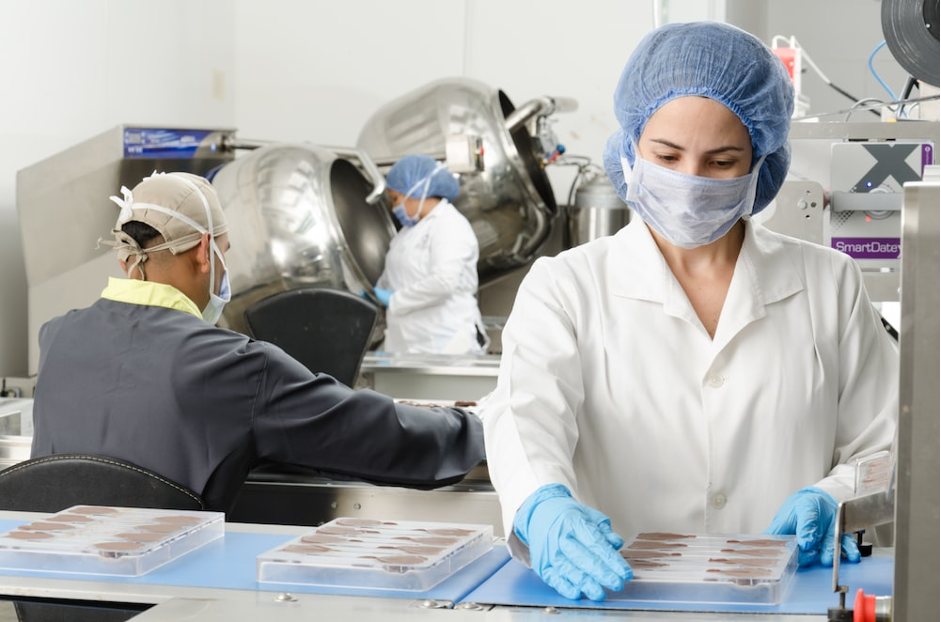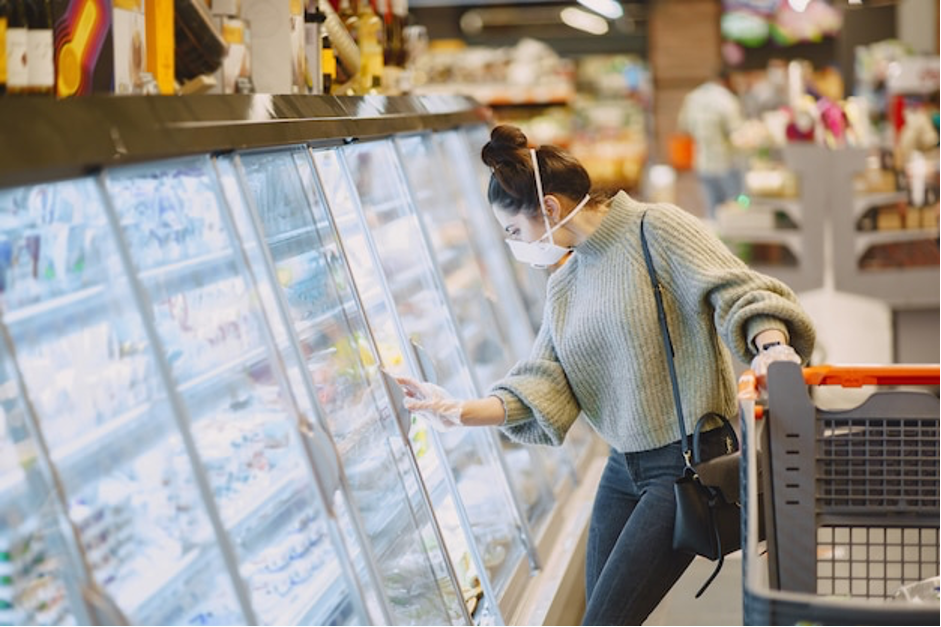
The science of freezing food & it’s benefits

Freezing is a method of food preservation that involves slowing down the growth of microorganisms and the chemical reactions that produce spoilage. Freezing food stops these processes so that bacteria can’t grow, and enzymes in food don’t break down its structure or change its flavour. This prevents your frozen meals from going bad after buying them at the store or making them yourself.
The History of Freezing Food

Disclaimer – We don’t own the image used above, it belongs to www.loc.gov and you can see the image here https://www.loc.gov/item/qlt000392/
Freezing food has been around for a long time. The first documented case of freezing food was in China during the Han Dynasty (206 BCE – 220 CE), when they used snow and ice to preserve meats and vegetables. In Europe, people were freezing meat as early as the 16th century, but it wasn’t until 1851 that Louis Pasteur discovered how to make a liquid into ice crystals by lowering its temperature below 32 degrees Fahrenheit (0 degrees Celsius).
In modern times, industrial freezers have been developed that allow us to store large amounts of food at once without having to worry about spoilage or bacteria growth.
What’s The Science Behind it?

Freezing food is a great way to preserve it and make it last longer, but what exactly happens when you freeze something?
The physical process of freezing involves lowering the temperature of your food until it reaches a point where all of its molecules stop moving. This causes them to become solid, which means they won’t change shape or form anymore. The chemical process that occurs when food freezes also affects how long it lasts after being frozen–some foods can last longer than others because they’re more resistant to oxidation (a reaction caused by oxygen) and other chemical reactions that break down nutrients over time.
In addition to preserving nutrients, freezing makes some foods easier for us humans to eat: ice crystals form within cells as water turns into ice during this process; these crystals cause cell walls around them to break open so they can escape from their original structures into surrounding liquid water (which doesn’t freeze). This allows us access not only into what were previously inaccessible parts like cell membranes but also gives us access inside individual cells themselves!
The Benefits of Freezing Food

Freezing has many benefits for consumers, especially If you’re having a busy schedule, and probably don’t have time to cook every night before work or school (or maybe even during). Freezing your own meals means that when you get home late at night, all you have to do is reheat one of your frozen dinners instead of spending hours preparing something new from scratch.
It also saves money: buying frozen foods instead of fresh ones can save up to 50% per serving! And if there are any leftovers after dinner? Just pop them into the freezer so they’ll be ready next time around!
The Impact of Freezing on Food Quality
Freezing has several positive impacts on food quality, including:
- Preservation of Nutritional Value: Freezing can help to preserve the nutritional value of foods by preserving their vitamins and minerals. Frozen fruits and vegetables can retain their nutritional value for several months.
- Increased Shelf Life: Freezing can increase the shelf life of foods by several months, allowing them to be stored and consumed at a later date.
- Reduced Microbial Growth: Freezing can slow down or completely halt microbial growth in foods, which can help to prevent food spoilage and foodborne illnesses.
- Improved Texture: Freezing can improve the texture of some foods, by breaking down connective tissues and making them more tender.
- Convenience: Freezing allows for convenient meal planning and preparation. Prepared meals or ingredients can be frozen and thawed when needed, reducing cooking time and minimizing waste.
Conclusion
In this article, you’ve learned the science behind freezing food and its benefits. You now know that freezing is a process that preserves food by slowing down the growth of bacteria, yeasts and molds.
The future holds many exciting developments for the technology behind freezing food. As scientists continue to find new ways of preserving foods without using preservatives or additives, we can expect to see more innovative products available at our local grocery stores in the coming years!
If you’re looking for a better Frozen Food option among the various companies out there you must try Goeld – frozen foods, They’re made with fruits and vegetables that are grown using organic and sustainable farming methods, which helps to reduce the use of harmful pesticides and fertilizers. Plus, the packaging is made from recyclable & Food Grade materials, so you can feel good about reducing waste and minimizing your impact on the environment.



